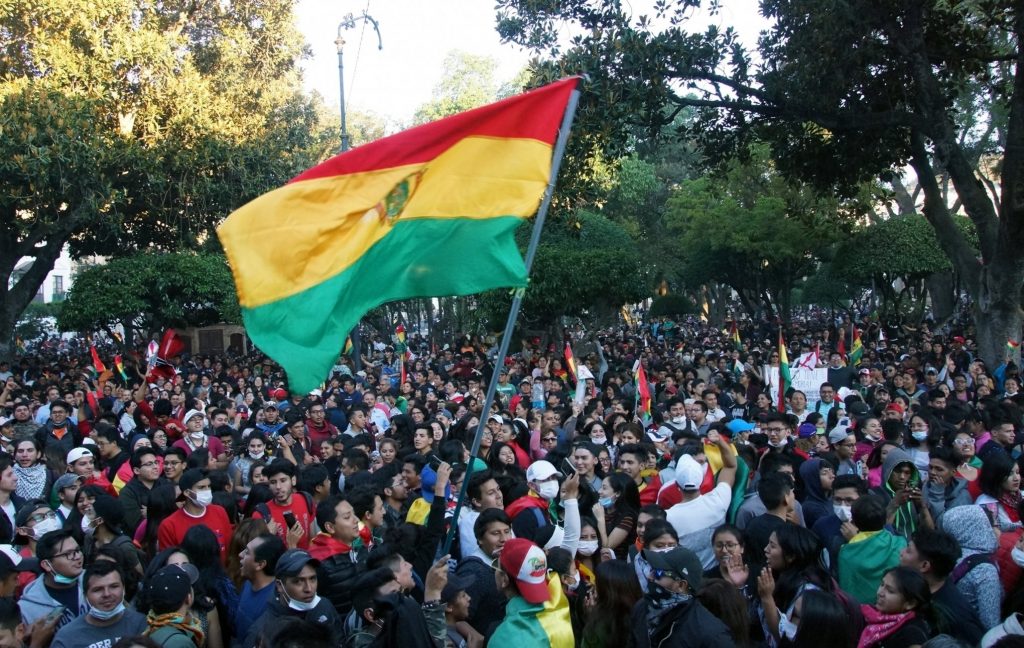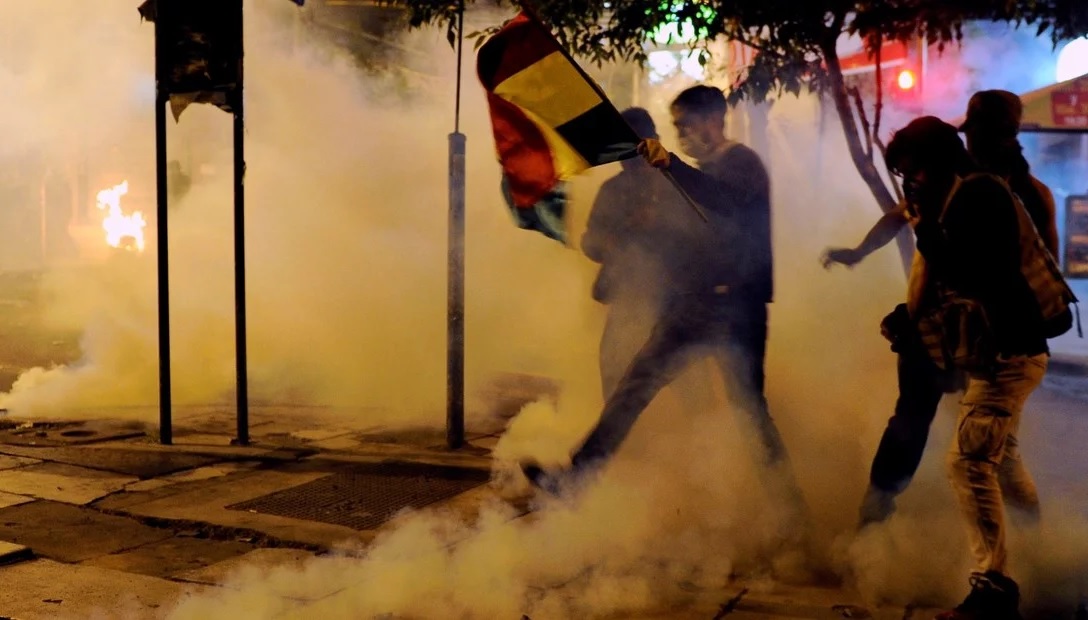RIO DE JANEIRO, BRAZIL – Chaotic and contested vote-counting in Bolivia has turned the country into a pressure cooker about to explode.

The interruption of the count for close to a day and its sudden resumption on Monday night, with results leaving Evo Morales on the verge of victory without the need for a second round, unleashed harsh protests in the country’s major cities.
The main opposition candidate, former President Carlos Mesa, called on his followers to exert pressure on the streets and described the electoral process as “scandalous fraud”.
The Organization of American States (OAS) also raised suspicions over the data and challenged the “inexplicable change in trend“.
The European Union also voiced “serious concerns” about the counting, and the Spanish government considered that “in the name of preserving credibility” the authorities must ensure transparency and respect for procedures.
Donald Trump’s administration has gone further. A representative of the Department of State has accused the ruling establishment of trying to “subvert democracy”.
Thousands of citizens took to the streets in major cities such as La Paz, Santa Cruz (where there were barricades and calls for strikes), Cochabamba, Potosí, and Sucre. The marches ended in confrontation, violent incidents, and police repression, with several wounded.
The demonstrators burned, invaded, and torched two headquarters of departmental electoral tribunals. The Supreme Electoral Court and its delegations became the apple of discord in these elections.
It was this body that, on Sunday night, began to broadcast the results and, after projecting a second-round scenario between Morales and Mesa, interrupted the tallying announcements, alleging a software conflict in the system.

In La Paz, hundreds of militants of the Movement for Socialism (MAS), the president’s political party coalition, faced opposition supporters crowded in front of the hotel where the national tallying center was headquartered.
Separated by a police cordon, the demonstrators exchanged insults and claimed victory at the polls, in a mobilization that lasted until late in the afternoon. But then the protest got out of hand. The police released tear gas and there were highly tense events.
At night, in the neighborhood of Sopocachi, next to Abaroa Square, groups of oppositionists had set fires in the streets and faced the police. In addition, the opposition called for a rally in the capital on Tuesday.
In the midst of this climate, and fearing that the situation would worsen, hundreds of citizens queued up to get supplies and paralyzed dozens of gas stations, particularly in urban centers.
They all appealed against violence, but they also blamed each other for the abuses. “The government, with its decision to defraud the popular will once again, is solely responsible for the violence that is threatening Bolivia,” said Mesa, who had already warned people against attempts at manipulation and fraud during the electoral campaign. The executive urged the population to remain calm and wait for the final result, which, he said, would be tight.
Mesa, a candidate from the Comunidad Ciudadana (Citizen Community) party, met with the OAS mission, which also heard foreign minister Diego Pary. The body, which on Sunday headed the international observation of the ballot, decided to issue a warning to authorities late on Monday night.
The head of the delegation, former Costa Rican Foreign Minister Manuel González Sanz, criticized the interruption of the rapid tally and expressed his “deep concern and surprise at the change in trend”. “At 8:10 PM yesterday [Sunday, local time], the Supreme Electoral Court failed to release preliminary results, by a decision of the plenary, with more than 80 percent of the ballots counted”.
“Twenty-four hours later, it provided data with an inexplicable change of trend that drastically changes the fate of the election and generates a loss of confidence in the electoral process,” said the body’s representative.
González Sanz read a statement that urged the relevant authority “to resolutely defend the will of the Bolivian people, with strict adherence to the Constitution and its complementary laws. We hope that the result of the final count will hold fast to the will of the voters expressed at the polls,” he said.
Source: El País

